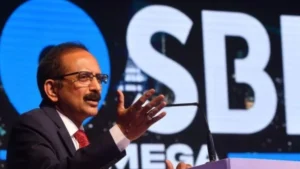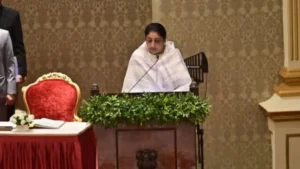
In Badminton, former World Champion Nozomi Okuhara of Japan clinched the Denmark Open 2020 title beating three-time world champion Carolina Marin in women’s singles. In the men’s singles final, world number seven Anders Antonsen of Denmark defeated his compatriot Rasmus Gemke.
WARRIOR 4.0 | Banking Awareness Batch for SBI, RRB, RBI and IBPS Exams | Bilingual | Live Class
Winners List:
| Category | Name of the Sportsperson |
|---|---|
| Women’s Single | Nozomi Okuhara (Japan) |
| Men’s Single | Anders Antonsen (Denmark) |
| Men’s Double | Marcus Ellis and Chris Langridge (England) |
| Women’s Double | Yuki Fukushima and Sayaka Hirota (Japan) |
| Mixed Double | Mark Lamsfuss and Isabel Herttrich (Germany) |



 Weekly One Liners 26th January to 01st o...
Weekly One Liners 26th January to 01st o...
 Can SBI’s New ‘CHAKRA’ Power India’s Nex...
Can SBI’s New ‘CHAKRA’ Power India’s Nex...
 Who Is Sunetra Pawar, Maharashtra’s Firs...
Who Is Sunetra Pawar, Maharashtra’s Firs...








